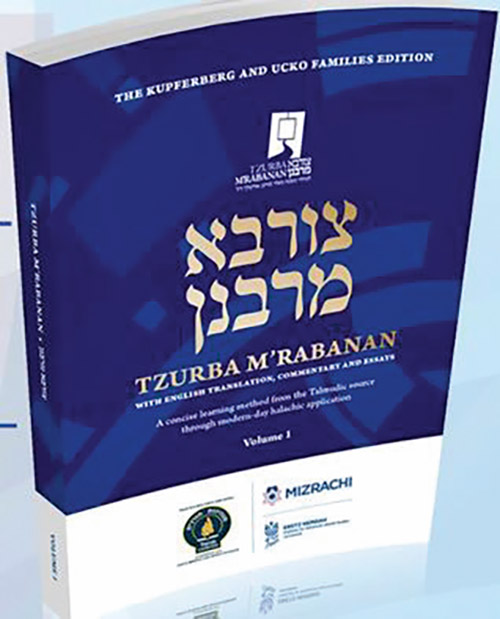

One of the challenges of learning Talmud is that it is not organized linearly. And if one wants to master an entire topic, one has to learn the entire Talmud to ensure one has covered everything. Which is not necessarily such a bad thing.
And if one wants to gain more in-depth insights into a specific topic, with its practical current halachic applications, it requires a significant breadth of study. Which, once again, is not necessarily such a bad thing.
For those who want to master a topic, but may not have the time or skills to do that, there have been many initiatives to help with that. A recent one is the Tzurba M’Rabanan program.
Tzurba M’Rabanan is an interesting and engaging worldwide learning program that comes from a partnership among Manhigut Toranit (a program that prepares people for teaching and rabbinic positions in the diaspora), Mizrachi and the Eretz Hemdah Institute for Advanced Jewish Studies.
With its fifth volume recently out, the program provides a systematic method to learn a topic from its Talmudic sources, through the rishonim and achromin, to current practical application. The four-year program cycle covers about 300 different topics, including tzedaka, Shabbos, prayer, visiting the sick, vows and much more.
The Tzurba M’Rabanan program has been in place in Israel since 2003, and the English translations are meant to bring the program to English speakers. Each topic is clear, well-written and organized. After serious study, one comes out with a good understanding of the topic at hand. This includes not only its Talmudic source, but also responses from a wide set of contemporary poskim.
For those looking for an interesting, highly engaging and challenging learning program, Tzurba M’Rabanan is one to consider. Even if one does not want to formally join the program, the volumes provide insights and understanding into various topics. Each topic is covered concisely and systematically.
For many people, Rabbi Yitzhak Twersky is known as the son-in-law of Rabbi Joseph Soloveitchik. Placing him in that context can take away from his greatness as an individual.
While not as well known as his esteemed father-in-law, Rabbi Twersky was a man of vast talents. Besides being a world-class scholar, he was both a chasidic rebbe and a professor of Hebrew literature and philosophy at Harvard University.
In “Torah of the Mind, Torah of the Heart,” his student Rabbi David Shapiro has gathered his remarkable Torah thoughts from Bereishit and Shemot from his time at the Talner Beis Midrash in Boston, where Rabbi Twersky held court. Here, Shapiro gives over what Rabbi Twersky said at shalosh seudot at the Talner Beis Midrash during the 1980s and 1990s. He has gleaned many of the brilliant insights that Rabbi Twersky gave over. The book does a good job of bringing Rabbi Twersky’s brilliant insights to a broader audience.
By Ben Rothke
�











